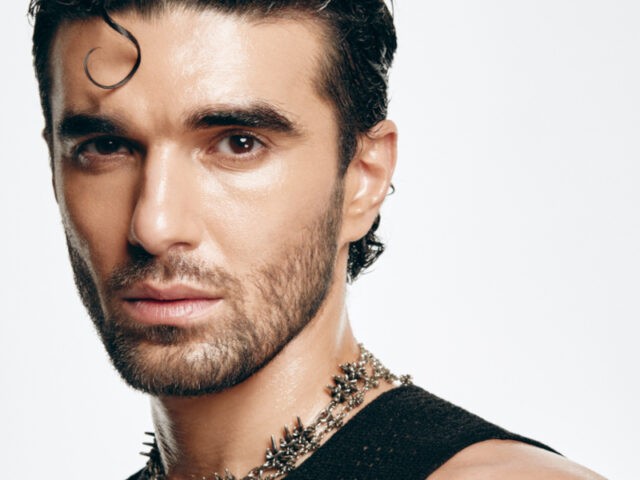WNBA White Guilt Parade: Examining The Controversy

Table of Contents
The Origins of the "White Guilt Parade" Criticism
The phrase "WNBA White Guilt Parade" gained traction primarily through social media and certain conservative news outlets. It's a reaction to the WNBA's long-standing commitment to social justice initiatives and the prominent role players take in advocating for various causes. This criticism often frames player activism as performative or exploitative, suggesting that the focus on social issues detracts from the sport itself.
- Specific Instances: Critics often point to specific instances of player activism, such as wearing social justice-themed jerseys, participating in protests, or speaking out on politically charged issues, as evidence of a "White Guilt Parade." These actions, they argue, are motivated by a desire to appease a particular segment of the fanbase or to garner positive media attention, rather than genuine concern for social justice.
- Social Media Narratives: The term has been amplified significantly through social media, where narratives questioning the sincerity and effectiveness of WNBA activism often go viral. These online conversations often create echo chambers, reinforcing pre-existing beliefs and limiting exposure to counter-arguments.
- Underlying Criticisms: Underlying criticisms frequently involve accusations of the WNBA prioritizing social justice over sporting excellence, distracting from the game itself, and alienating fans who disagree with the players' political stances. Some argue that focusing on social issues hurts the league's potential for growth and mainstream appeal.
Arguments in Favor of WNBA Social Justice Initiatives
Conversely, many defend the WNBA's social justice initiatives, emphasizing the importance of using platforms for social change and amplifying marginalized voices. They argue that the league’s commitment to social responsibility is a positive aspect, reflecting the values of many players and fans.
- Amplifying Marginalized Voices: The WNBA has consistently served as a platform for players to speak out against systemic racism, sexism, and other forms of injustice. This activism provides a voice to communities often overlooked in mainstream media.
- Impact on Broader Conversations: WNBA players' activism has demonstrably impacted broader social conversations, raising awareness and prompting discussions on crucial issues. Their high-profile stances can inspire action and encourage dialogue beyond the sports world.
- Successful Social Justice Campaigns: The WNBA has spearheaded several successful social justice campaigns, collaborating with organizations and raising significant funds for worthy causes. These campaigns demonstrate the league's commitment to using its influence for positive social impact.
Analyzing the Fan Perspective and the Business Implications
The "WNBA White Guilt Parade" controversy significantly impacts fan engagement and the league's business model. The reaction is diverse, with some fans actively supporting the WNBA's social justice stance while others express disapproval and potentially boycott the league.
- Potential Loss or Gain of Fans: The controversy has the potential to alienate some fans who disagree with the players' political views, leading to a decrease in viewership and attendance. However, it could also attract new fans who appreciate the league's commitment to social justice.
- Financial Impact: Boycotts could negatively impact league revenue, sponsorships, and merchandise sales. Conversely, increased support from fans aligned with the league's values could offset these losses.
- Navigating the Complex Landscape: The WNBA faces the challenge of balancing its social justice commitment with the need to maintain a broad and engaged fanbase. Effective marketing strategies and clear communication are crucial in navigating this complex landscape.
The Role of Media Coverage in Shaping Perceptions
Media coverage plays a significant role in shaping public perception of the WNBA's social justice initiatives and the "White Guilt Parade" controversy. The way the issue is framed can significantly influence public opinion.
- Framing of WNBA Activism: Different news outlets may frame WNBA activism in vastly different ways, some highlighting the positive social impact, others focusing on the criticisms and potential negative consequences.
- Potential for Media Bias: Bias, both conscious and unconscious, can impact how the story is presented, potentially exaggerating or downplaying certain aspects of the controversy.
- Social Media's Amplifying Effect: Social media platforms further amplify these narratives, creating echo chambers and reinforcing pre-existing biases. Misinformation and selective highlighting of information can contribute to a skewed understanding of the situation.
Conclusion
The "WNBA White Guilt Parade" controversy highlights a significant clash of perspectives surrounding social justice activism in professional sports. This debate forces a deeper look into the role of athletes as public figures, the impact of social media on public discourse, and the intricate relationship between sports, business, and social change. While criticisms of the WNBA’s initiatives exist, it’s crucial to consider the positive societal influence and the league's role in amplifying marginalized voices. Understanding the nuances of this ongoing discussion is critical for fostering productive conversations about the WNBA, social justice, and the future of sports activism. To further explore this complex issue, continue researching the various viewpoints surrounding the WNBA and its involvement in social justice initiatives, engaging with respectful and informed discussions about the "WNBA White Guilt Parade" and related controversies.

Featured Posts
-
 Man City Transfer News Haaland Exit Speculation Mounts
May 19, 2025
Man City Transfer News Haaland Exit Speculation Mounts
May 19, 2025 -
 Eurovision 2025 Speculation Mounts Over Jamalas Involvement
May 19, 2025
Eurovision 2025 Speculation Mounts Over Jamalas Involvement
May 19, 2025 -
 Parg Armenias Eurovision In Concert 2025 Participant
May 19, 2025
Parg Armenias Eurovision In Concert 2025 Participant
May 19, 2025 -
 Jennifer Lawrence And Cooke Maroney Another Public Appearance After Baby No 2 Reports
May 19, 2025
Jennifer Lawrence And Cooke Maroney Another Public Appearance After Baby No 2 Reports
May 19, 2025 -
 Early 2025 A Decline In Air Passengers At Maastricht Airport
May 19, 2025
Early 2025 A Decline In Air Passengers At Maastricht Airport
May 19, 2025
